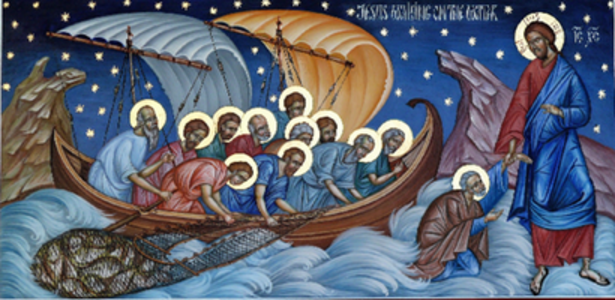The concept of a being who is simultaneously fully divine and fully human represents one of the most enduring paradoxes in Western philosophy. While primarily a theological doctrine, the "Hypostatic Union" serves as a fascinating case study in metaphysics, epistemology, and classical logic. It challenges the boundaries of human categorization and forces a confrontation between binary reasoning and transcendent reality.
From a metaphysical standpoint, the central problem is one of identity and essence. Classical metaphysics relies on the definition of natures. A "finite" nature, such as humanity, is defined by limitations in time, space, and power. An "infinite" nature, or divinity, is defined by the absence of those limits. The assertion that a single entity could possess both natures simultaneously appears to violate the Law of Non-Contradiction. How can X be both A (limited) and not-A (unlimited) at the same time and in the same respect?
Early thinkers grappled with this by refining the definitions. The Council of Nicaea in 325 AD established the term homoousios, meaning "of the same substance," to argue that the divine and human natures were distinct yet united in one "person" or hypostasis. This distinction attempts to resolve the logical contradiction by clarifying that the "who" (person) is singular, while the "what" (nature) is dual. This nuanced separation prevents the natures from mixing or diluting each other, preserving the integrity of both the finite and the infinite within a single existential structure.
Epistemologically, the paradox raises questions about the limits of human knowledge. If the human mind functions through logic and sensory experience, how can it comprehend a reality that by definition transcends those tools? This connects to the "Problem of the Criterion," which asks how we can know anything at all without a prior standard of truth. In this context, the specific claim of divinity often relies on revelation as a separate category of knowledge, distinct from empirical observation or rational deduction.
This tension between reason and revelation has driven much of the intellectual history of the last two millennia. Medieval scholastics like Thomas Aquinas argued that while such mysteries might be "above" reason, they are not "against" reason. They sought to use Aristotelian logic to demonstrate that the contradiction was only apparent, not actual. They posited that human language is analogical rather than literal when applied to the divine. When we say a human is "wise" and a god is "wise," the term carries a different weight, allowing for a logical coherence that strict literalism would break.
The socio-political implications of this metaphysical debate were vast. The alignment of a culture around a "God-Man" fundamentally altered the Western conception of the individual. If the divine could unite with the human, then human life possessed an inherent, objective dignity that transcended state power. This metaphysical valuation laid the groundwork for later concepts of universal human rights. The abstract arguments over substance and essence had concrete effects on how laws were written and how kings were limited.
Modern philosophy often dismisses these debates as archaic, yet the core logical problem remains relevant in other fields. Quantum mechanics, for instance, introduces similar paradoxes where particles exist in superpositions of states that classical logic rejects. The "wave-particle duality" of light offers a secular parallel to the dual nature of the Christological paradox. In both cases, the observer is forced to accept that reality may be more complex than the binary categories of human language can contain.
Ultimately, the study of this theological puzzle offers value beyond the religious sphere. It serves as a rigorous exercise in abstract thought. It demands that the thinker hold two opposing concepts in tension without collapsing them into a false synthesis. This mental discipline, the ability to engage with the paradoxical and the infinite, remains a vital skill in a world that is increasingly complex and resistant to simple binary explanations.

